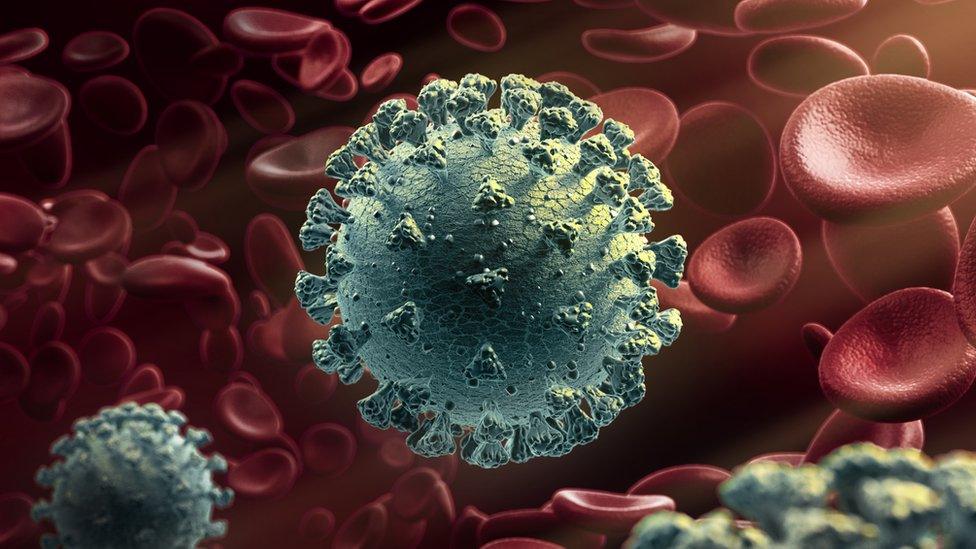Covid in Scotland: Parents of children with special needs 'struggling'
- Published
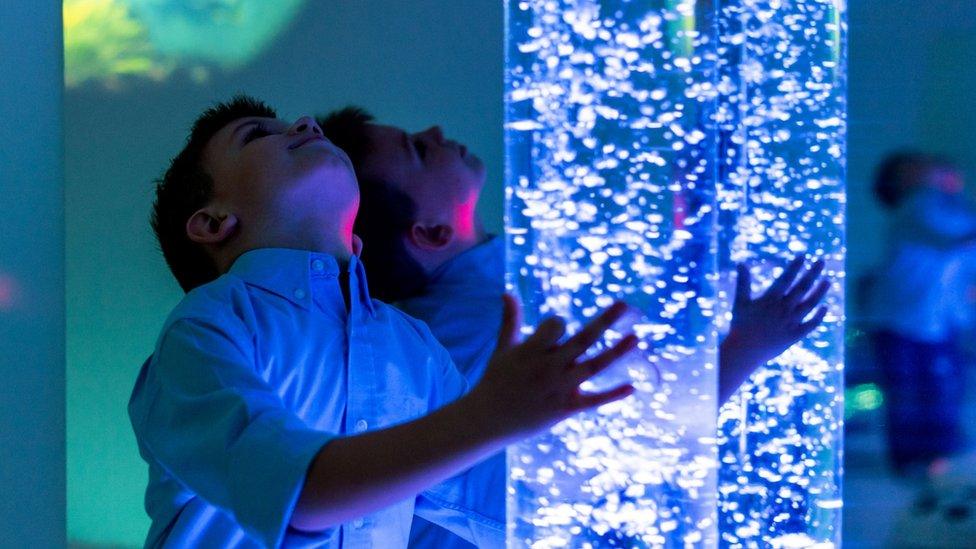
Children with special needs are missing out on sensory therapy sessions while at home during lockdown
Parents of children with special needs say they are struggling to cope because they are not getting their usual support or respite during lockdown.
Some children have limited or no time in school and provision appears to depend on where they live.
Many families are struggling with round-the-clock care, and want special schools to continue to operate full time in all areas.
The Scottish government said decisions had to be made on a case-by-case basis.
Maree Todd, minister for children and young people, told BBC Scotland the needs of the children would be considered by the team around them which included parents.
Only 3.5 % of children in Scotland attend special schools and all of them have very high level of need, with the schools acting as therapy centres as well as for education.
Parents are also asking that special school staff are vaccinated as a priority, which would also speed up the return of children to the schools.
Last week, Green MSP Ross Greer called for staff in special schools to be next in line for the vaccine, pointing out that their work is between the role of a teacher and a care worker.
Scottish government guidelines say priority for school places should be given to children of key workers and those classed as vulnerable.
But while in some local authority areas special schools have stayed open to all pupils, others are offering part-time places or less.

'I cannot provide 24/7 attention for him'
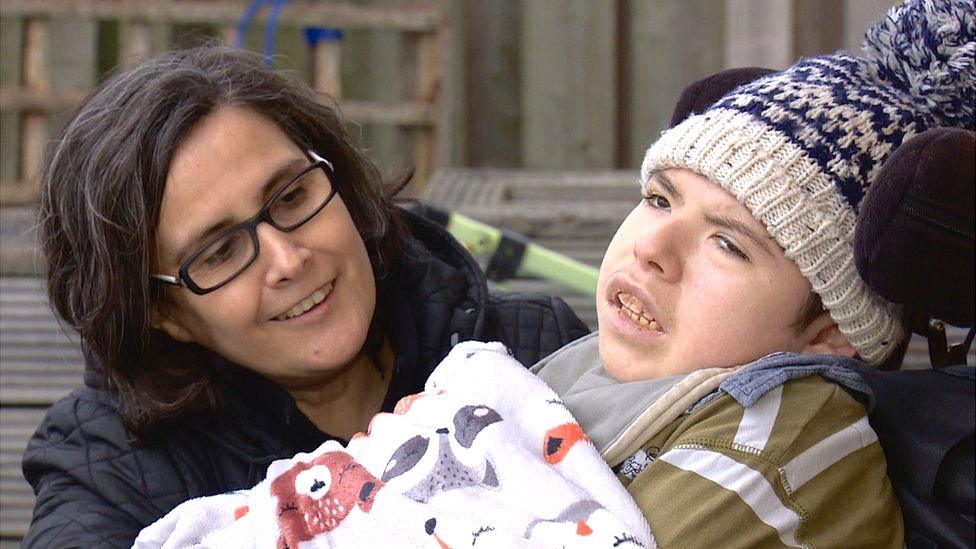
Claudia has her son Christian at home full time just now
Claudia Romero,from Edinburgh, has three sons, aged 11, 14 and 15.
Christian, who is 11, has complex needs. He is non-verbal and uses a wheelchair. He is now at home full time meaning his mother has to be with him all the time.
"He cannot do anything himself so I need to be with him doing the special things that the school provides online," she says.
"But it's not the same because he is lacking his physiotherapy, hydrotherapy, all the sensory stimuli that we don't have the equipment for here at home. I cannot provide 24/7 attention for him doing the work they do at school."
The family gets one day a week of NHS respite care for Christian.
Claudia has her husband to help out in the evening but adds: "It's not the same as having the six hours when he is in school."
Claudia believes all special schools should be open, with precautions in place, and offering children full provision during lockdown.

Sophie Pilgrim, director of Kindred, a charity which supports parents of children with complex needs, told BBC Scotland: "It is really not sustainable. The parents single-handily cannot provide that treatment and therapy for the children, without the support of the schools."
She said the first lockdown was "extremely hard" for families but the weather had made things even worse this time with families saying they were unable to take children with respiratory illnesses out at all.
"Some local authorities have kept their special schools open but some other councils seem to be providing just one or two days of special school support to families and I think that's a huge concern."
The charity is calling for the Scottish government to keep all of Scotland's special schools open during lockdown and has written to Education Secretary John Swinney.
'We will pay a price'
Ms Pilgrim said: "Only 3.5% of children across Scotland attend special schools and they are in those schools because they are extremely vulnerable. They are there because they need a very high level of extra support.
"Some children are getting absolutely no time at all. It's not the same as a child not getting an education, it's the therapeutic support that those children are getting and the respite support for the parents. I have seen people who are at mental and physical breaking point."
Ms Pilgrim said she was concerned that children were also failing to get the physiotherapy and exercise they needed and many of the children were exhibiting challenging behaviour, not seen before.
"We are hearing of some children being very violent towards their parents or their siblings," she said. "Those behaviours are very hard to unlearn and I do think we will pay a price if we don't open our special schools."
She added: "We would urge that Scotland follows the lead shown by England, Wales and Northern Ireland and we reopen our special schools to full-time placements."

Days in school are 'a lifeline'
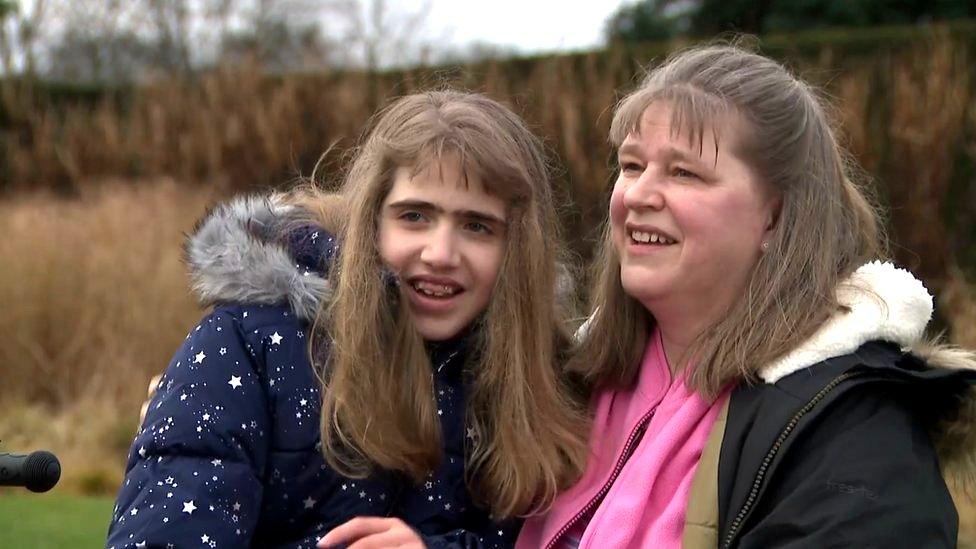
Kirsty Watt says her daughter Eilidh needs the school routine she gets three times a week
Kirsty Watt's daughter Eilidh has autism and life-threatening epilepsy, suffering seizures day and night when her oxygen needs to be monitored.
She is getting three days a week at her special school in Edinburgh as well as transport there and back. Kirsty says that is a real "lifeline" for the family.
"A school place is very important for children with special needs as they have a routine that they are used to," Kirsty says. "Home learning is vastly different for a child with special needs compared to a child at mainstream school."
"Eilidh has quite severe epilepsy and each seizure is like running a marathon and if you think about running four or five marathons a day your body is exhausted," she says.
She says not being in school is very unsettling for children like Eilidh and she makes sure she tries to stick to a timetable at home.
"Eilidh is much more unsettled when she is not in school. Her behaviour can become difficult at times where she's not having the usual socialisation and routine that she had in school. Disturbing that routine is very difficult for her."

The children's minister said: "Schools are open and vulnerable children are able to attend. But we have to balance that with the over-arching aim of limiting the number of interactions that happen in society - limiting the amount of household mixing."
Ms Todd said there was a relatively high number of children with complex support needs attending special schools just now - about 20% compared with 4% for all schools - which she believes shows there is enough flexibility in the system.
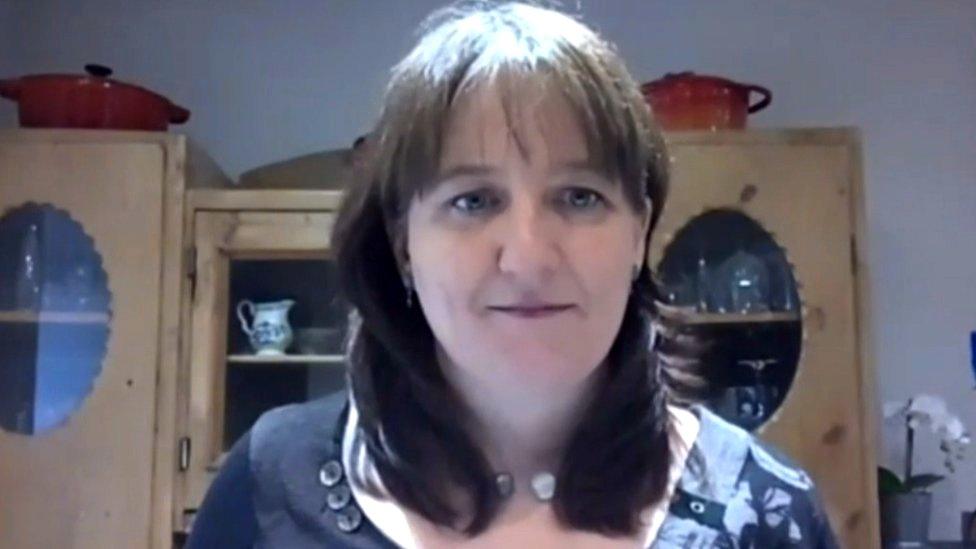
Children's Minister Maree Todd said decisions on a child's needs needed to be made by the team around them
She added that there were 32 different councils and decisions needed to be made individually as to how best to meet a child's needs - by the team around them, which included their parents. She pointed out that some parents were concerned about sending their child into school.
"We are looking very carefully at who would benefit most from early access to education," she added.
"There's a very clear recognition from the Scottish government that those people who were facing inequality before the pandemic are facing those inequalities during the pandemic and we are determined to tackle that as far as we can."
She added that the vaccine needed to be prioritised for those that needed it most, then other groups would be looked at.


- Published1 July 2020
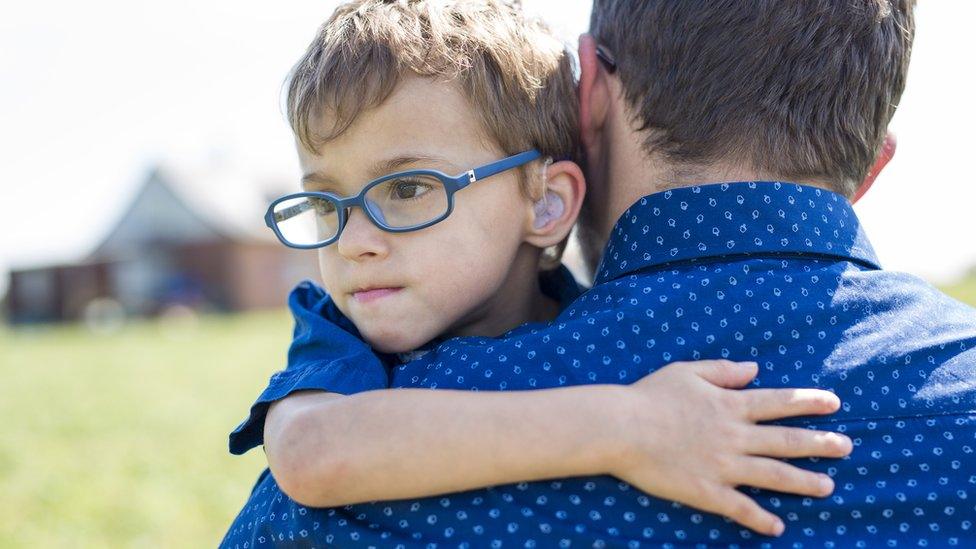
- Published15 January 2021
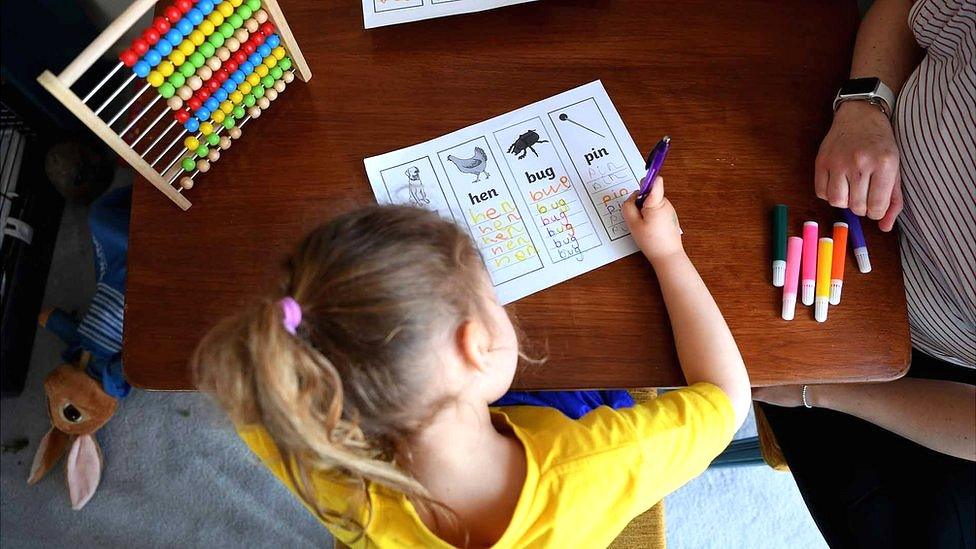
- Published13 January 2023

- Published22 January 2021
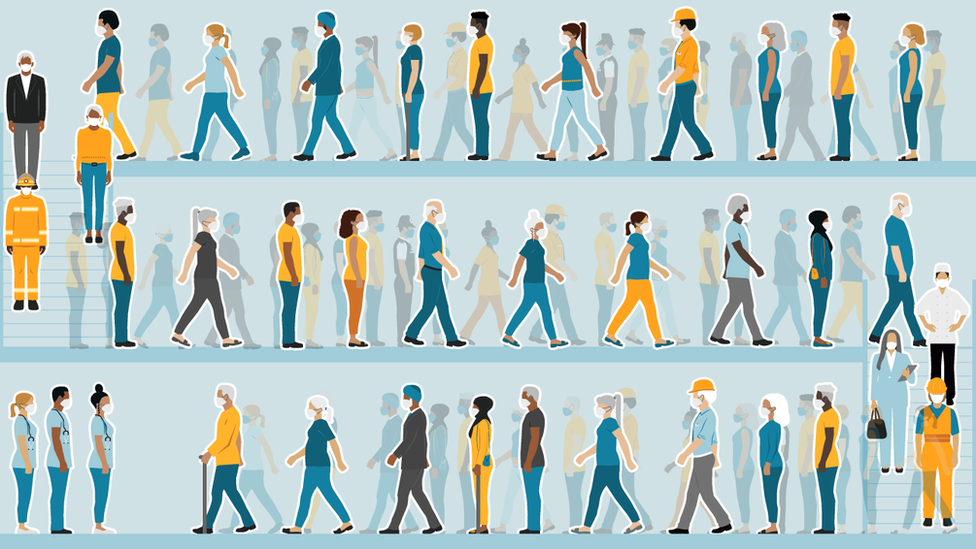
- Published20 December 2020
